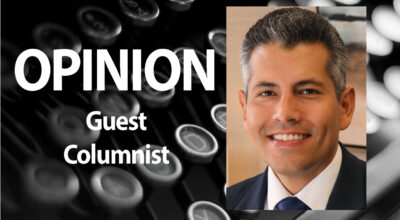Texas Senate opens 85th Session
Published 8:25 am Wednesday, January 11, 2017
Special to The Leader
The Legislature of the State of Texas was called to order in both houses on Tuesday, kicking off a fresh 140 day session for lawmakers to address the needs and future of the state. Lt. Gov. Dan Patrick was happy to welcome members new and old to the storied building. “We are blessed to serve others, especially with people we respect,” he told the 31 members and their families in a packed Senate Chamber. Senators were also welcomed to Austin by Gov. Greg Abbott, who challenged members to set aside political differences and to work for the benefit of the people of Texas. “People of both political parties can come together to ensure that Texas retains its extraordinary brand of opportunity,” said Abbott. “We may bring different political perspectives, but we unite under one capitol dome. ”
Three freshman Senators took the oath of office for the first time on Tuesday. Senator Dawn Buckingham will represent the 24th District of Texas, a central region that stretches from Abilene in the north to Fredericksburg in the south, as well as parts of west Austin. This is her first term in the Legislature. The other two new members are both former state Representatives. After 10 years in the House, Senator Borris Miles will represent SD 13, which comprises much of the city of Houston. Senator Bryan Hughes will represent SD 1, which includes parts of the northeast region of the state including the City of Tyler. His prior service in the House began in 2003.
The most important job for the Legislature in any session is crafting the state budget, and this time it will have less money available than last biennium. That’s according to the revenue estimate released by State Comptroller Glenn Hegar on Monday, who estimates the state will collect $104.9 billion in revenue over the next two years. The Texas Constitution says that lawmakers can’t spend more than the state takes in, and that number is down almost three billion dollars from last biennium. Budget writers will also start with less money in the bank this session, with $1.5 billion left in state coffers compared to more than seven billion dollars two years ago.
While revenue collections were up a modest 1.7 percent over last biennium, Hegar said that an estimated $4.7 billion in sales tax funds, earmarked toward transportation spending by voters who approved Proposition 7 on last November’s ballot, drove the estimate below 2016-2017 levels. Another factor was the sharp drop in oil and gas prices since 2014, impacting the state’s collections from the oil and gas severance tax. “Still, the diversity of the Texas economy has allowed for slow but continued economic expansion and steady growth in employment, which we expect to continue over the coming biennium. Texas stands in contrast to other states with large energy industries, many of which have suffered declines in employment and economic output,” said Hegar. The comptroller’s estimate predicts economic growth in 2017 of 2.5 percent and about 3 percent in 2018-19, less than the 20-year average of 3.8 percent but well above last year’s anemic rate of 0.2 percent.
The Senate will reconvene Wednesday, January 11, at 11 a.m.





